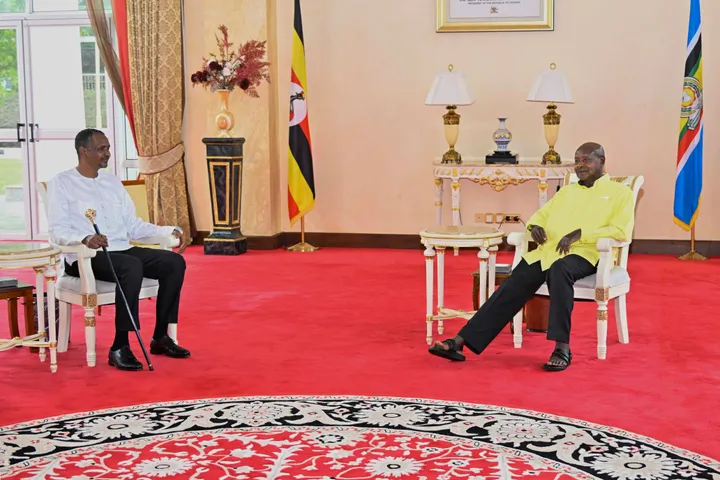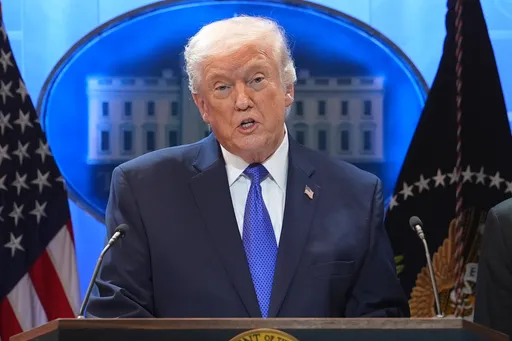On the eve of the midterm elections in the United States, US President Donald Trump announced a far-reaching change in citizenship law – as a sign of his strict stance towards illegal immigration.
He wants to prevent immigrant babies from automatically acquiring US citizenship when they are born in the United States.
"We are the only country in the world where someone arrives, has a baby and that baby is then a US citizen for 85 years with all the advantages that entails," Trump said in a video interview with Axios, which was partially published on Tuesday in advance.
"This is ridiculous. And that must stop."
However, it is unclear whether Trump's plan has any prospect of implementation, or is just election manoeuvring.
In citizenship law, the so-called principle of descent, under which a child receives the passport his or her parents have, is the most widespread in our time.
In some countries, however, the birthplace principle also applies, according to which a country grants citizenship to all children born on the territory of that country – sometimes under specified conditions.
What does this mean?
In the US, the birthplace principle is enshrined in the Constitution, in the 14th Amendment, but without restrictions.
It says: "All persons born or naturalized in the United States, and subject to the jurisdiction thereof, are citizens of the United States and of the state wherein they reside."
Contrary to what Trump claims, the US is by far not the only country in the world where this principle applies.
Overall 30 other countries also have such a regulation in citizenship law – including Canada.
Trump said he had always been told that a constitutional amendment would be necessary to overturn the rule in the US. But that is not the case.
"Now they say I can do it with a presidential decree." Trump did not go into more detail about who exactly he was referring to and on what assumption the assessment was based.
However, he is primarily targeting illegal immigrants, whose children would no longer automatically become US citizens when they are born in the USA – in contrast to the current situation.
Why is this happening now?
Trump already campaigned for a departure from the birthplace principle during the 2016 presidential election campaign and complained that the regulation was the biggest motivation for illegal immigration.
He has brought it up on his political agenda again as he deployed over 5,200 troops to the US-Mexico border.
Different voices think that President Donald Trump has made the Central American migrant caravan of thousands of Latin Americans who want to reach the US via Mexico a campaign theme.
It seems possible that, before the important midterm elections on November 6, he will take measures to raise public awareness to motivate his Republican base to come out and vote.
However, the so-called migrant caravan is unlikely to arrive at the US border before the election.
On November 6, 2018, all 435 seats in the US House of Representatives and 35 of the 100 seats in the Senate will be up for grabs.
Additionally, gubernatorial elections will be held in 36 states.
The Republican Party is threatened with the loss of the majority in the House of Representatives with dangerous implications for Donald Trump.
Who does it affect?
According to the Pew Research Center the number of babies born to illegal immigrants in the US has been declining from a high of 330,000 in 2009 to 275,000 in 2014.
Even though birth rates are declining, 32 percent of total births by foreign-born mothers in the US were by illegal migrants.
As stated by the US-based Migration Policy Institute more than 11 million illegal migrants reside in the US, out of 44 million migrants in total.
These millions of migrants living in the US illegally would lose the right of their children to get US citizenship if born on US soil.
Ways to amend the US constitution
There are actually four channels to amend the constitution.
Firstly, both Houses (the Senate and House of Representatives) propose an amendment by a two-thirds majority and three quarters of the national legislators approve it.
Secondly, both Houses propose an amendment by a two-thirds majority and three quarters of the US States ratify the amendment.
Thirdly, two-thirds of state legislators request Congress to hold a constitutional treaty and three-quarters of state legislators approve it.
Lastly, two-thirds of state legislators ask Congress to hold a constitutional treaty and three quarters of states approve the amendment by ratification.
However, the US has not passed an amendment since 1992, illustrating how difficult it is to amend the constitution.
President Trump, however, believes that he can change the given right by decree, this discussion will certainly go on. Either on rally campaigns or in the Constitutional Court.
Maybe on both.























